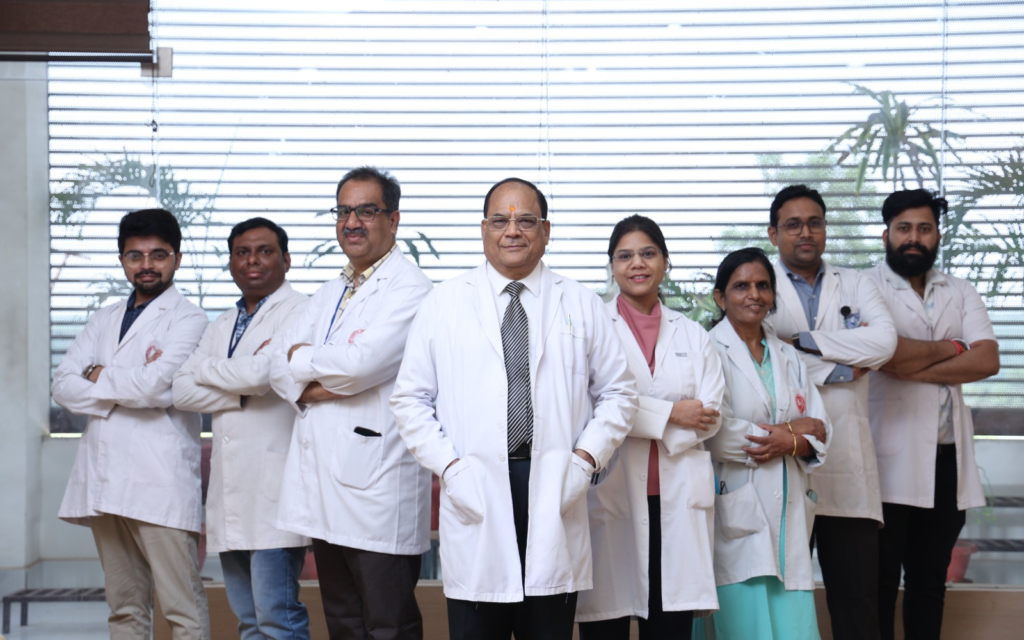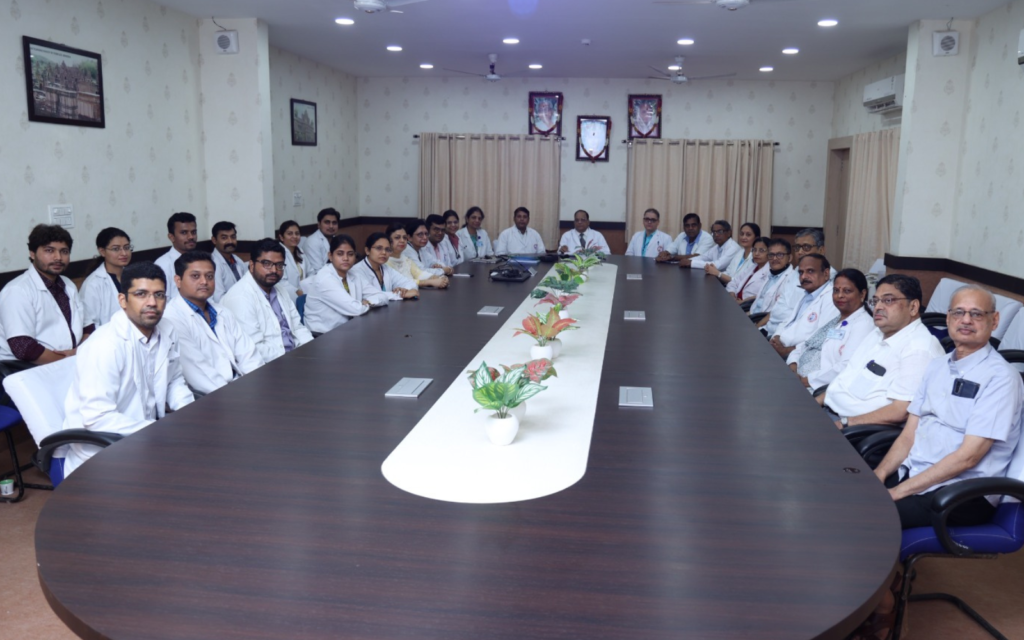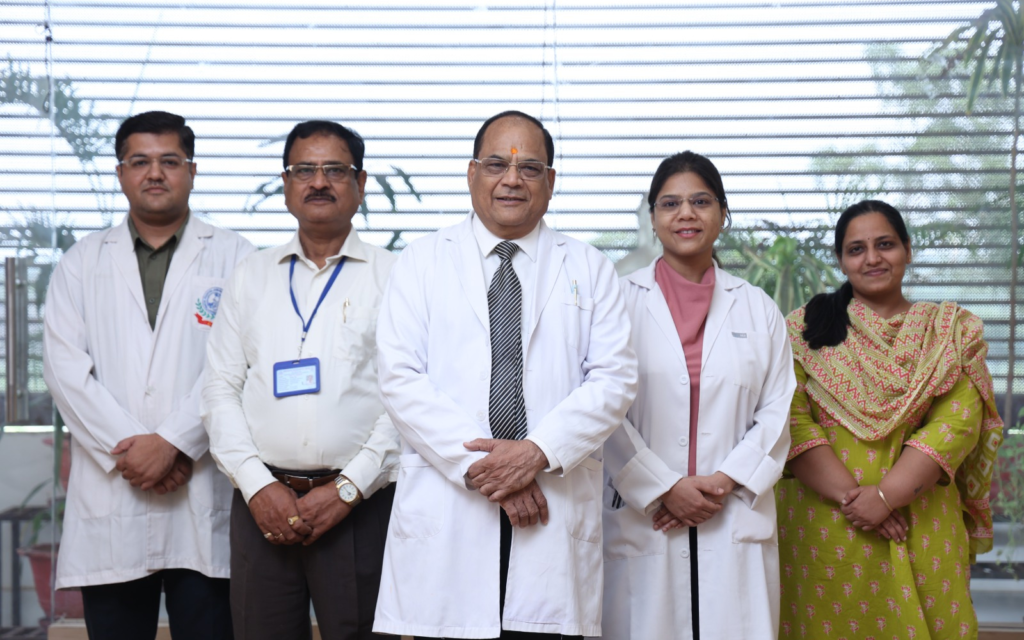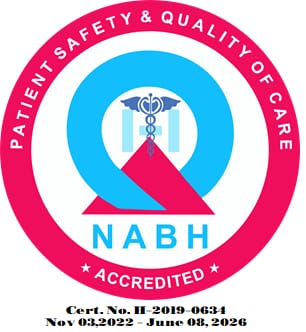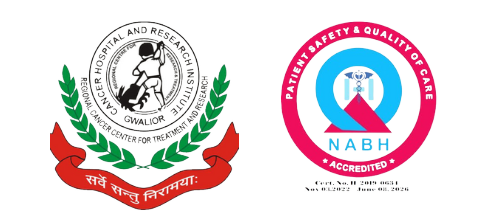Department of Medical Oncology
Medical Oncology
Department of Medical Oncology
Medical Oncology
Medical Oncology
Department of Medical Oncology
Overview
Oncology is a branch of medicine that deals with the study, treatment, diagnosis and prevention of cancer. The Department of Medical Oncology is functional in Cancer Hospital & Research Institute with the aim to provide holistic treatment to the malignant (cancerous) as well as non-malignant cases. The department has well equipped OPD running on all working days. Also, we are providing emergency services and Tele-medicine support to critically ill patients beyond regular duty hours. The department encourages the patient and family members to become active participants in their care through patient education.
Get a call back from our health advisor
Biological safety cabinet (BSC) are in place to handle chemotherapy and safe mixing of cytotoxic drugs. Anti-cancer drugs are known to be mutagenic, teratogenic, and carcinogenic. Additionally, exposure has been reported to result in rashes, skin discoloration, scarring, blurred vision and dizziness. These cytotoxic drugs may enter the body by three possible routes: -Inhalation, -Ingestion, & Skin contact. Therefore, the department is equipped with Chemo Compounding Isolator Laminar Airflow Cabinet with HEPA Filter, where round the clock available trained pharmacist prepare chemotherapy medicines before administering to the patients.

Various Modalities of Medical Treatment for Cancer
Chemotherapy
Chemotherapy is the treatment of cancer with one or more cytotoxic anti-neoplastic drugs (chemotherapeutic agents) as part of a standardized regimen. Chemotherapy may be given with a curative intent or it may aim to prolong life or palliate symptoms. It is often used in conjunction with other cancer treatments, such as radiation therapy, surgery, and/or hyperthermia therapy.
By medical oncology, we mean treatment of cancer with the help of Chemotherapeutic drugs. Chemotherapy reaffirms the efficacy of the surgery if the cancer is detected in its early stage. Chemotherapy improves the quality of life and prolongs survival in advanced stage or end-stage cancers. In conditions like Lymphoma, Leukemia and Germ Cell tumors, chemotherapy plays a curative role.
Our experienced and empathetic chemo nurses use the latest chemo delivery devices to make treatment easier. This helps patients to complete planned drug cycles and prepares them for the next line of treatment, putting them on the path to recovery. The drugs are prepared under an infection-free Laminar Hood which maintains effectiveness. Chemotherapy can be administered in day care basis.
Traditional chemotherapeutic agents act by killing cells that divide rapidly, one of the chief properties of most cancer cells. This means that chemotherapy also harms cells that divide rapidly under normal circumstances i.e. cells in the bone marrow, digestive tract, and hair follicles.
It is a known fact that chemotherapy can cause some side effects in the digestive tract, hair follicles etc. Decreased production of blood cells (myelosuppression and resultant immunosuppressant), inflammation of the lining of the digestive tract (mucositis), hair loss (alopecia) etc. are some of the common side effects of chemotherapy.
Chemotherapy may use one drug at a time (single-agent chemotherapy) or several drugs at once (combination chemotherapy or polychemotherapy). The combination of chemotherapy and radiotherapy is chemo-radiotherapy. Few drugs that exerts cytotoxic activity only upon light exposure is called photo-chemotherapy or photodynamic therapy.
Hormone Therapy
Hormone therapy has limited use in cancer treatment since only minority of tumours are hormone sensitive e.g. breast and prostate cancer. This therapy provides systemic means of treatment to the whole body, but without the side effects of chemotherapy.
Immunotherapy
Immunotherapy is a form of treatment which stimulates the body’s immune system to destroy cancer cells. But it is expensive.
Departmental Activities: -
- Running onco-medical OPD on all working days.
- Onco-med. Dept. provides immunotherapy, targeted therapy and IV AND oral chemo-therapy to patients.
- Immunotherapy is a modality of cancer treatment. It uses substances made by the body or in a laboratory to boost the immune system and help the body find and destroy cancer cells. Immunotherapy can treat many different types of cancer. It can be used alone or in combination with chemotherapy and/or other cancer treatments.
- Chemotherapy can only be given to the patients when their certain blood tests report shows targeted range of lab. values, therefore CHRI pathology does all blood investigation pertaining to chemotherapy as advised by Medical Oncology department.
- Department takes care of neutropenia (decrease in white blood cells- neutrophil count) in cancer patients, so their defense system could fight the disease efficiently.
- Department provides continuous on job training and medical education to the nursing staff.
- Administration of chemotherapy on daycare basis.
- Participating in preventive medical camps in outreach areas.
Our Services

Surgical Oncology
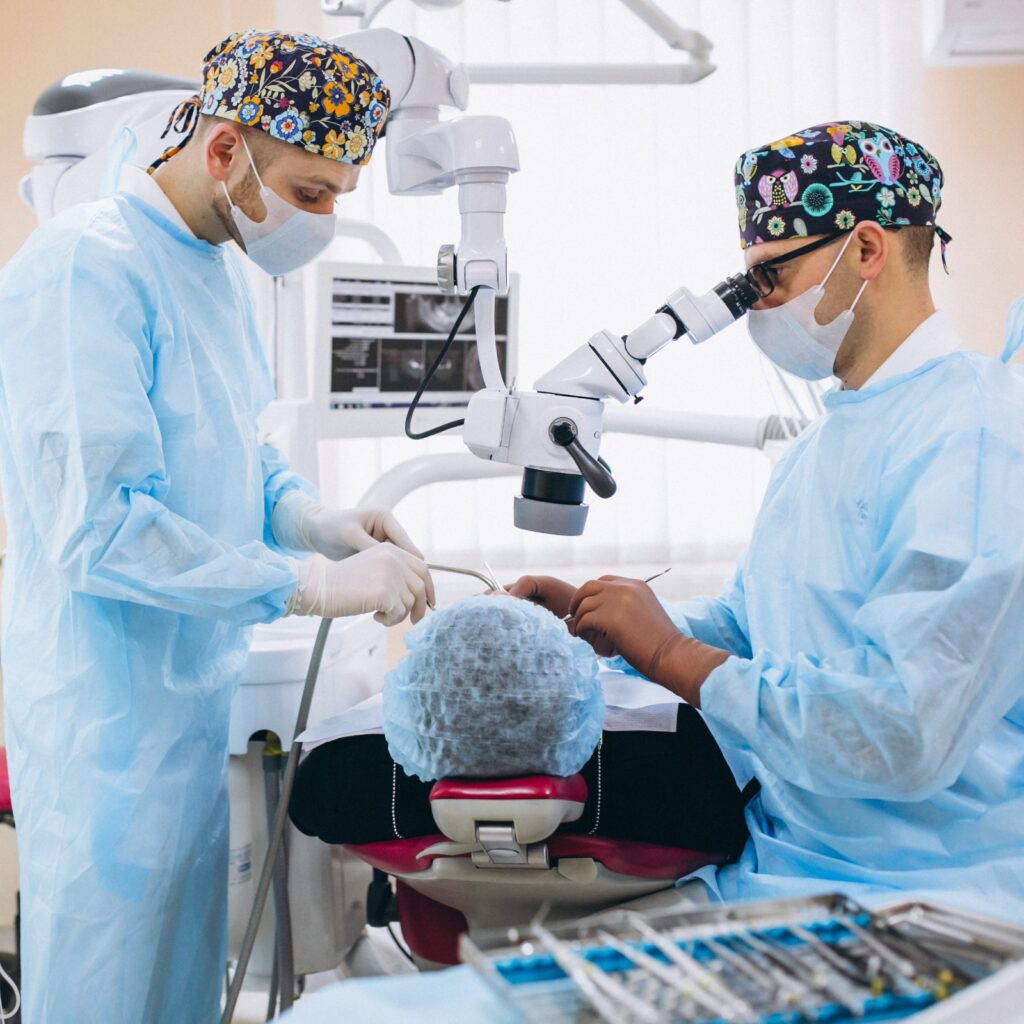
Radiation Oncology

Bone Marrow Transplant

Gynecologic Oncology

Anesthesiology
Schedule your appointment
